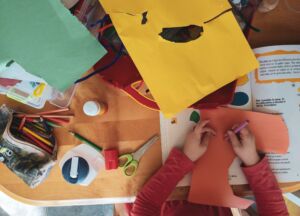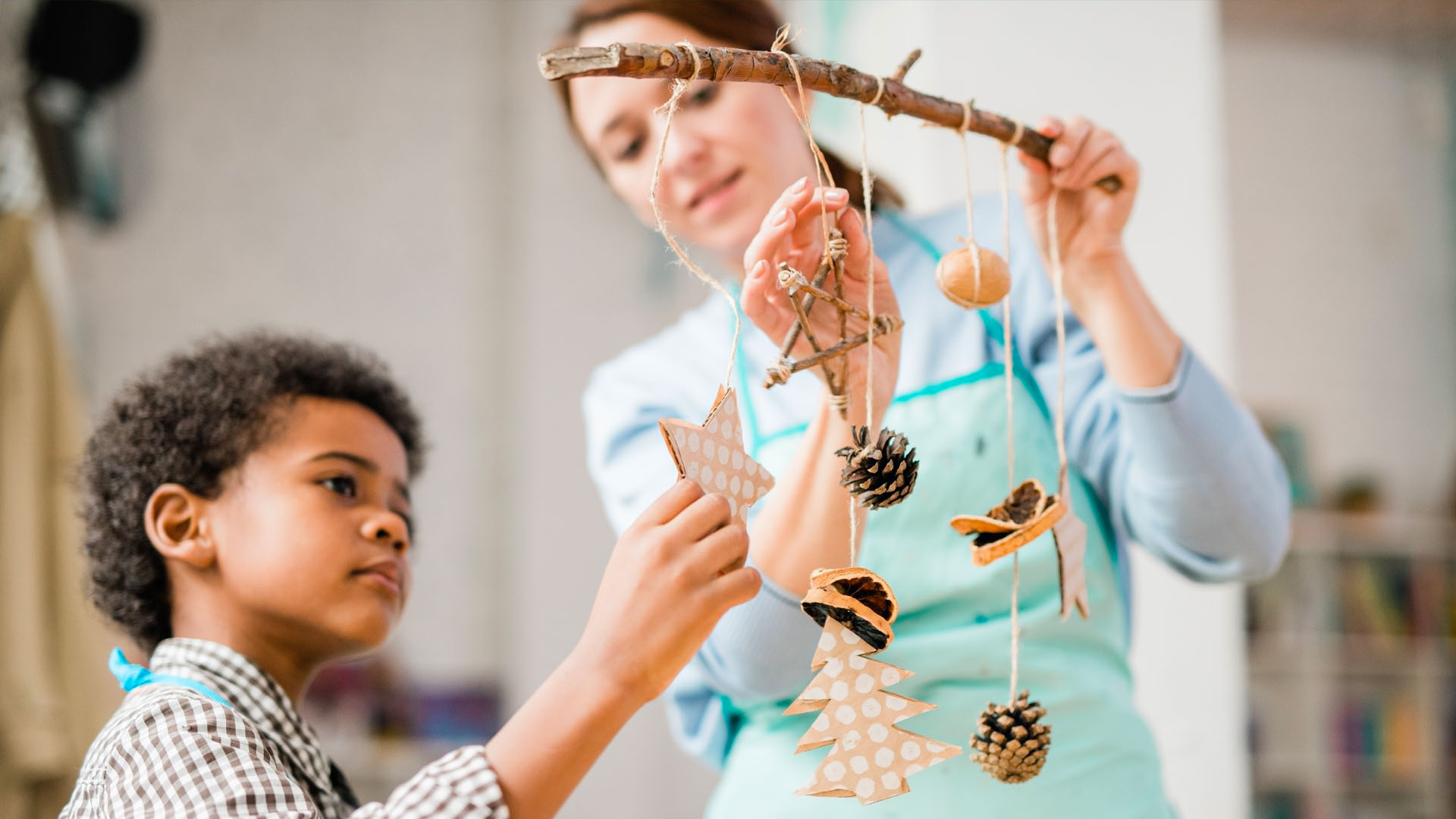When the world fell apart in March 2020, the nonprofit I founded and direct, “The Castle,” had already been reeling from a series of personnel and logistical issues that challenged our capacity to do the work we’d set out to do: address the fallout of high-stakes testing by partnering with local schools to nurture a culture of learning grounded in joy, creativity, relevance, rigor and authenticity. From Spring 2012, when we launched our pilot program in the perfect test environment—a school serving K-6 students with one class per grade level—until May 2019—when we were serving 2,500 K-12 students in ten partner schools in the county—we worked with teachers to identify areas of the curriculum they wanted to enhance, then developed workshops with creative partners (using arts-integration, project-based learning and creative problem-solving as core strategies) that they led in the classroom during the school day. Our network of creative partners was humbling; over 800 people, from artists and business owners to DePauw faculty and students, worked with us to craft experiences in their areas of expertise, passion and curricular trajectory (in the case of DePauw students) that helped students enter into the course material in new and exciting ways.
In the midst of the pilot program, I witnessed something that informed the vision of the next seven years: after two full days of workshops on completely different topics led by three DePauw students (who brought their enthusiasm for their subject into the classroom and cheerfully embraced every seeming detour from their lesson plan), one of them said to me, exhausted but beaming, “now I know what my learning is for.” From that point on, I became obsessed with the idea of building a learning community made up of primary, secondary and college students and educators based on the premise of reciprocal gifts. A space that dismantled the traditional top-down educational model with the express intention of engaging every participant in the acts of creation and discovery.
“Education is for something, that it is projected outwards, future-seeking, inherently optimistic.”
If I sound wistful and nostalgic, I am. The DePauw student who uttered that vision-altering sentence was my student, a compassionate seeker from whom I was privileged to learn. It was a simple and profound idea about the value and purpose and function of education—that education is for something, that it is projected outwards, future-seeking, inherently optimistic. Real learning happened in the classroom he stepped into. I’ve been chasing the beauty and organic nature of that encounter ever since.
Pivot #1 – Thanks to a Pandemic
We wanted to find a way to support all our county teachers, to do something to lift spirits and provide whatever resources we could to make learning more joyful for our teachers and students. The way we happened upon was a virtual series, which we named “BOOST: Energizing the Covid Classroom.” Using grant money we were no longer able to apply towards in-person programming, we contracted three teaching artists to develop interactive, asynchronous, videos in various arts-integrated strategies/activities, geared to specific grade levels. We released this to all county teachers and administrators in Spring 2021.
We entered into Fall 2021 with slightly higher hopes that the cohort model, now that we were masked-but-in-person, would have renewed energy. To our disappointment, we only received 3 takers. My lead teachers threw themselves into the work and, again, helped these teachers to maximize the opportunity. Again, we had wonderful projects to show for it.
Pivot #2 – New Partners & New Approaches
This year, we changed things up a little bit, in the efforts of giving the lead teachers the autonomy to run introductory workshops in areas they were each passionate about. We had also just partnered with West Central Indiana Educational Services Center, which has expanded our network considerably. We were again hopeful and energized, thinking this was a turning point. We sent out e-blasts and fliers and multiple announcements and reminders on social media to every school, teacher and administrator in the West Central region (which serves 16 school corporations). There were two workshops: 1) “Be(you)tiful Classroom: A Practical Guide to a Joy-Filled Classroom and Finding Your Way Back to Why You Love Teaching,” targeted to K-5th grade teachers and 2) “More Than Just a Trendy Acronym… Practical PBL (Project-Based Learning),” targeted to 6-12th grade teachers. 5 teachers signed up for the first, 6 for the second.

Toward the end of the first workshop, a teacher broke down crying. “I don’t know how much longer I can take this,” she said. “How much longer can we be expected to teach in these conditions?” That’s when it all came into focus for me. How short-sighted we were being to think that professional development—which, no matter how you slice it and however much you sell it as “energizing,” “inspiring,” “rejuvenating” (insert generic pep-talk-sounding adjective here), brings with it the message (implied or explicit): “you’re doing it wrong. Do it THIS way”—was the way to truly support teachers in this unprecedented moment of full-scale attack on the profession. How could we have thought adding to the ever-mounting list of pressures was the way to go?
Not to mention, if I’m being honest, I’m kind of allergic to professional development. Don’t get me wrong: I believe that teaching is an art and a vocation that requires constant rethinking, transforming, and adapting in the service of better meeting students where they are and bringing the material to life. But professional development has always felt so prescriptive to me, so normative. I think Parker Palmer gets it completely right when he suggests there is no one effective way to teach; the heart of effective, impactful, human teaching is authenticity. Knowing yourself and bringing that self into the classroom.
So, when the teacher broke down, it began to make sense to me that that is the work we should be doing to support teachers—creating space for teachers to feel authentic in the classroom, just as our original vision has always been about creating that space for students. We want everyone to feel seen, heard and valued, because true learning—the kind of learning that sticks long after the class or semester is over—is nurtured in those spaces.
Pivot #3 – A New Path Forward
We’re on a new path now, thanks to much soul-searching and a truly amazing strategic planning consultant. And just in the nick of time, because I confess to feeling something very close to the despair voiced by that teacher. We had gone so far afield from the original light-bringing vision that I wasn’t sure I could continue. Our new slogan provides a touchpoint to remind us of the work we really want to do and who we really want to serve: “kids, teachers, environments.” Everything we now plan to do is in the service of facilitating environments which lift kids and teachers up. We have multiple new initiatives (some of which we’re implementing this semester, the others we will roll-out next year), including:
- an “inspired teaching” video series that celebrates local teachers
- a “master teacher” series that brings teaching artists into schools to demonstrate high-energy practices with students allowing teachers to observe and unpack what they’ve seen
- a new teacher cohort approach that aims to focus on teachers’ well-being and that can become a space for organic conversations about effective teaching
- a creativity center on the Greencastle square hosting monthly workshops facilitated by teaching artists
- in-school project-based learning trainings that will be an opportunity for team-building and for teachers to get that certification by 2025 in a way that will give them practical take-aways and a built-in support system.
“We’ll keep pivoting until we get it right.”
It feels like the right path for now. But we’ll keep pivoting until we get it right. Please reach out to me at bbenedix@depauw.edu for more information on what we’re up to, or if you’d like to get involved. And visit us on Facebook or our website. Would love to hear from you!
Resources
Please login or register to claim PGPs.
Alternatively, you may use the PGP Request Form if you prefer to not register an account.



